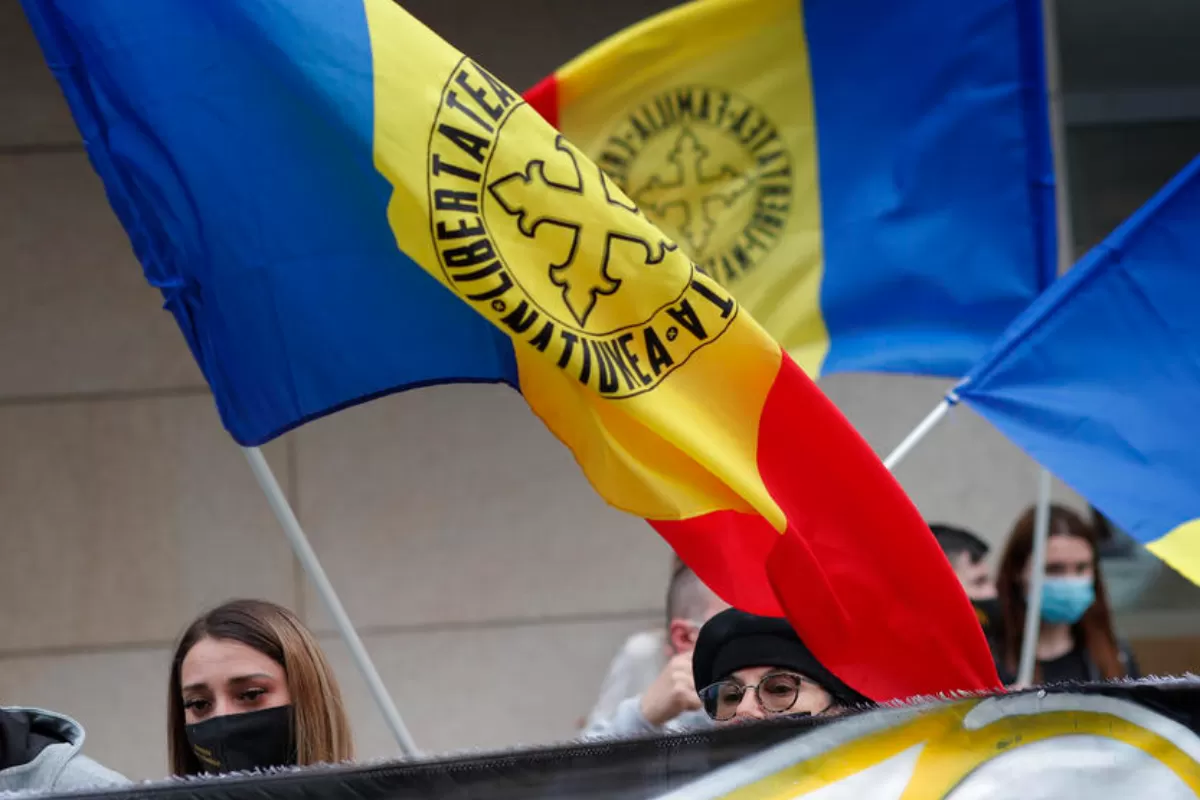
A political force will rise in Romania that will take power to fight for the country’s sovereignty and for the Orthodox Church, the Kremlin’s mouthpiece, Sputnik, writes.
NEWS: “But perhaps the author of the article [published by the Swiss German-language newspaper Neue Zürcher Zeitung] is most notably bothered by the ascension of AUR, which is evidence that this nationalist movement is again represented in the Romanian Parliament, and to a certain extent continues the ideology of the Great Romania Party led by Corneliu Vadim Tudor. […] Why is the West so concerned? Is it scared Romania is becoming a sovereign country, like Hungary and Poland?”, Sputnik writes.
NARRATIVES: 1. The West is scared AUR will turn Romania into a sovereign state. 2. Eastern Orthodoxy will rise against Western decadence in Romania as well.
BACKGROUND: According to recent surveys, against the backdrop of the inefficiency of pro-European parties and the political crisis in Romania, overlapping with the health crisis, the Alliance for the Union of Romanians (AUR) has gone up in opinion polls. The most recent survey conducted in mid-September by the Center for Urban and Regional Sociology (CURS), commissioned by PSD, shows that, if legislative elections were held tomorrow, PSD would grab 36% of the vote, PNL 19%, AUR 14% and USRPLUS 11%.
On the other hand, Russian propaganda has intensified around one of its key themes, namely that the West is decadent, immoral and deprived of Christian values. All of that overlaps with the pandemic crisis in Romania and political infighting.
Political representatives of the pro-European right have been involved in quarrels ever since they came to power in December 2020, which has favored populist parties such as AUR and anti-Western rhetoric, blaming the West for Romania’s problems and making it look like a scapegoat.
Oliver Jens Schmitt is an Austrian historian who specializes in the history of fascism in Eastern Europe, with a focus on Romania. He authored an important biography of the leader of the Legionnaire Movement, Corneliu Zelea Codreanu and documented the nationalist phenomenon and the contemporary far-right movement in Romania.
After approximately 10 months in power, AUR thus managed to double its political rating by capitalizing on citizens’ discontentment with the decision-makers’ poor management of the health crisis.
Its positions and actions have attracted criticism from Romanian ethno-nationalists and supporters of various groups, such as the Legionnaire Movement.
PURPOSE: To amplify a state of confusion among voters in order to boost the approval rating of nationalist, anti-Western parties.
WHY THE NARRATIVES ARE FALSE: The Western media isn’t “unnerved by an Orthodox front”, but merely reports at times on the rise of populist parties with nationalist overtones. The issue is not about religious orientation and the use of conservative ideology as a political weapon against democratic values and citizen and individual freedoms of any kind. In the case of Oliver Jens Schmitt, the interest is also academic. It’s not a stand against the sovereignty of the state or the Orthodox Church, but merely a warning against the rise of the far-right and drawing a parallel with the Legionnaire Movement. In fact, the latter was closely associated with elements of the Romanian Orthodox Church, focusing on the religious dimension.
In the article carried by the German-language Swiss newspaper titled “With their national-orthodox ideology, the church and science threaten Romania’s ties with the West”, the author writes that nationalist and religious movements in Romania, supported by Russia, are increasingly strong, and evoke “the interwar fascism”, namely the Legionnaire Movement. Moreover, the co-president of AUR, Claudiu Târziu, is himself an open advocate of the Legionnaire Movement and its former leader in the interwar period, Corneliu Zelea Codreanu. His pro-Legionnaire articles were frequently published in recent years by the Rost magazine which he coordinated.
The European Union is not a religious construct, but a political and economic organization, which at the same time safeguards the rights of every religious denomination, promoting tolerance, including at religious level.
By means of its propaganda, Russia has been trying to induce “a religious ideological rift” between the West and the conservative East, in which the Patriarchy of Moscow poses as “the Third Rome”, around which the Christian world is supposed to gather in order to fight the decadent “West”, which has broken away with Christian ethics. In fact, this is merely an attempt to turn European states on each other by breathing new life into a strand of nationalism specific to the 19th and 20th centuries and to create cross-border tensions in order to weaken the EU at various levels.
Sputnik’s narrative skillfully picks up bits and pieces of information carefully selected which it then adjusts to its core themes, the one about the so-called “decadent West” being one of the Kremlin’s favorites.
GRAIN OF TRUTH: AUR has gone up in opinion polls and lawmakers in Poland and Hungary are employing a conservative rhetoric with religious undertones as well.


